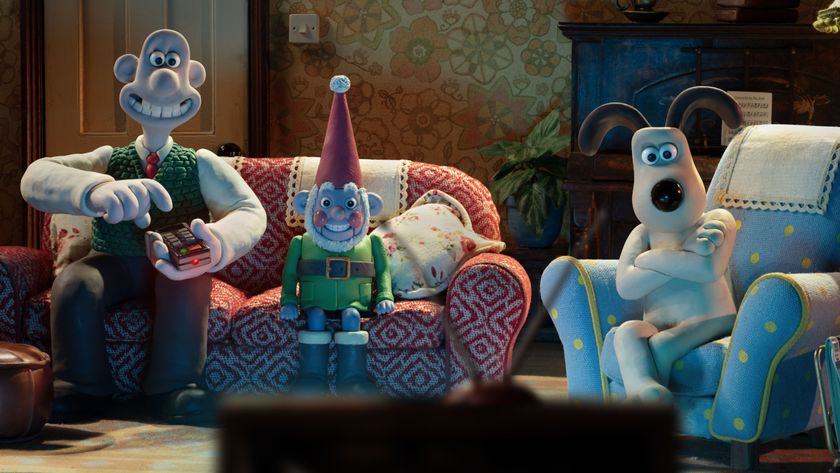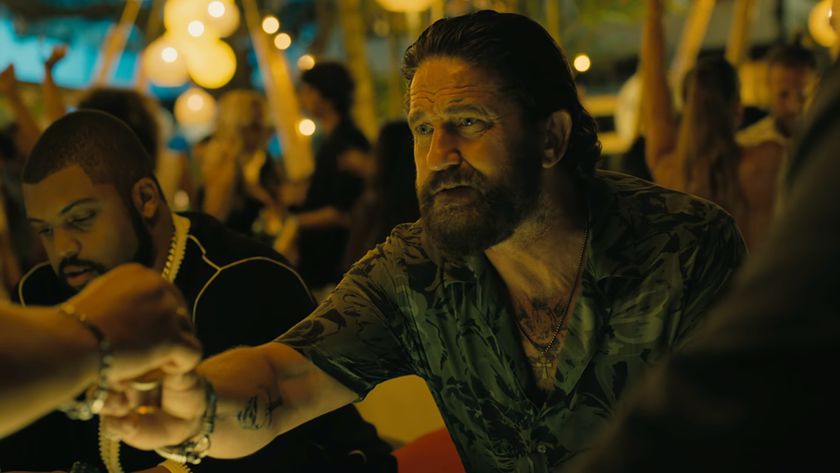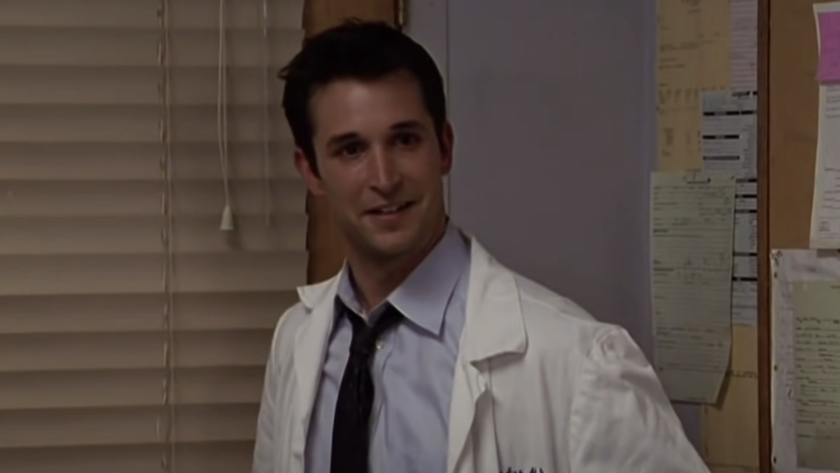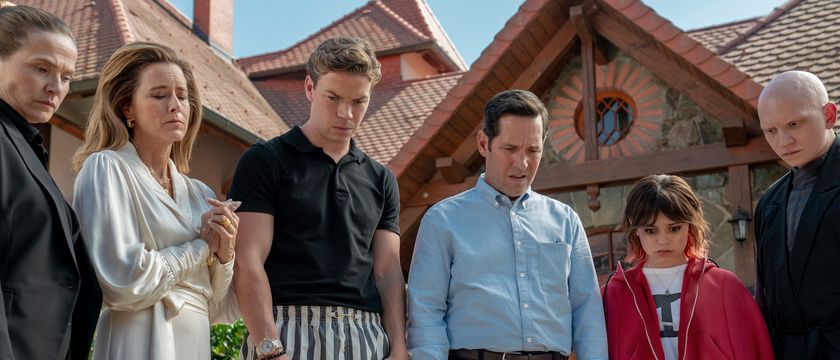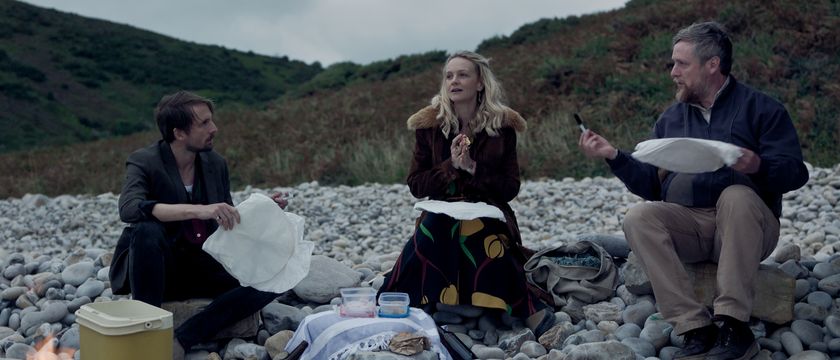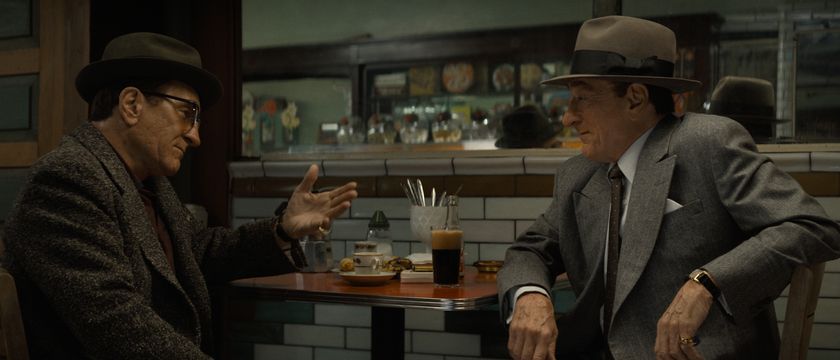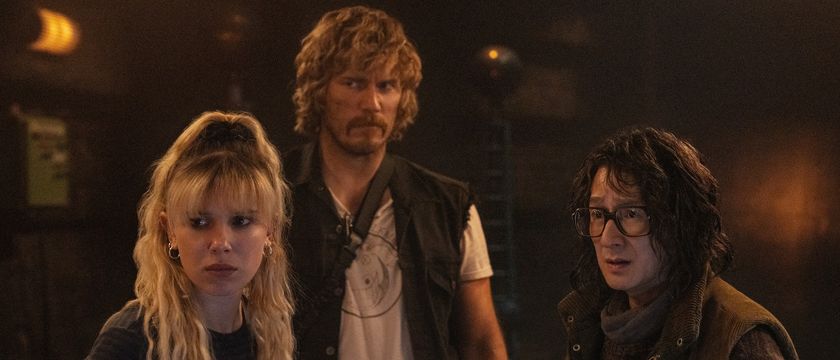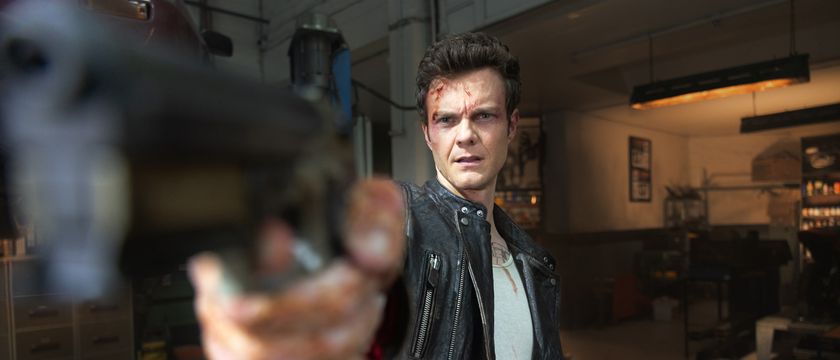For his directorial debut A.C.O.D., TV producer Stu Zicherman’s wrangled together an incredible cast of celebrated comedic performers including Adam Scott, Amy Poehler, Jane Lynch, Richard Jenkins, Catherine O’Hara, and Clark Duke. He throws them all together in a devotedly wacky story about a family made big and hugely dysfunctional by repeated marriages. So why is it all so bland and unfunny?
Scott, who is too often relegated to supporting roles in film, fronts A.C.O.D as its title character, an Adult Child of Divorce named Carter who—we’re told in dialogue—is very screwed up because of how badly his parents handled their break-up. But the thing is, Carter doesn’t seem screwed up. He’s a successful restaurateur who owns his own home, and has a beautiful girlfriend (Mary Elizabeth Winstead). But according to Dr. Judith (Lynch), not a therapist but a researcher who wrote a book about him when he was just a child of divorce, he is a chronic negotiator with a paralyzing fear of marriage because of his parents’ failed one. It’s hard to see either of these as major problems though as his negotiation skills help him manage his restaurant, and his fear of commitment doesn’t seem to bother his girlfriend of four years much, as she teases him but never really confronts him about it.
Despite his perfectly functional life, the movie insists he is broken because he's being cautious about marriage. Because, come on, who does that? Not his mother (O’Hara), who went on to marry a man in his third marriage. Not his father (Jenkins), who left the hot Danish model he cheated on his first wife with to marry his third wife (Poehler). And as it turns out not even his little brother Trey, the happy-go-lucky slacker who lives in Carter’s garage. After four months of dating his girlfriend Kieko (Valerie Tran), Trey is giddy to announce they got engaged. As Carter is apparently more parent to him than either his mother or father, Trey asks Carter not only to help him plan the wedding, but also to get his parents—who have resolutely not seen each other in twenty years—to agree to come to the wedding and just exist in the same room without causing a scene. Carter loathes this idea, content with the wary peace the two have struck in that they only trash talk to him and not at each other. But he’d do anything for baby bro Trey, and so here we go.
After visiting each of them separately, and being exposed to unfiltered rage, he decides to do that sitcom ploy where you invite each of them to dinner and force them to talk because—hey—dinner is already paid for? Why not stay and enjoy the tasting menu? But Carter’s plan sparks a whole new series of issues, which are frustratingly predictable. He struggles to keep the peace, and in doing so isolates himself from his family and girlfriend, all while giving his old therapist plenty of fodder for a new book. But despite plenty of mugging and fast-paced banter none of this is particularly funny. Most of it just falls flat, and it’s hard to say why.
There are definitely script issues. Winstead’s girlfriend role is more a plot necessity than an actual character, popping up just to play confidante or illustrate Carter’s commitment fears. This makes it hard to care much at all about this thread. Then there’s the therapy subplot that introduces other A.C.O.D.s for moments that lead nowhere. But most of all, Carter’s problems don’t add up. His negotiation and commitment fears only become a problem after Dr. Judith tells him that they are a problem. Then he practically explodes to exemplify them. But plot issues could be overlooked if this comedy were actually funny. Instead it feels tired, with Carter’s father insisting he wants to kick his mother in the nuts, and his mother crying out that Carter better not be “his father’s son.”
The film ends on a scene that is intentionally ambiguous, likely meant to be a clever moment but coming across as lazy, as if Zicherman and his co-writer Ben Karlin just didn’t want to make a choice on how to end the movie. This left me with unsatisfied, as if I’d walked away before it was over. It’s actually shocking how uninteresting A.C.O.D. ultimately is. Its premise had promise, allowing a well-adjusted man to revert to a reckless child to cope at last with his parents’ divorce. But the movie never takes advantage of that setup and instead reaches out into a bunch of dangling threads involving extended families, therapy, and Carter’s short-lived flirtation with a sultry A.C.O.D. played by Jessica Alba. But it’s downright criminal that Zicherman had the cast he did, stacked with stars from Parks and Recreation, Best In Show, Step Brothers, The Office and Party Down, and the result is something as flaccid and stale as this.
Staff writer at CinemaBlend.


